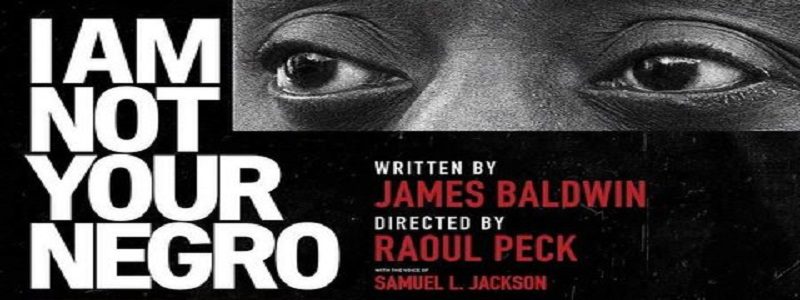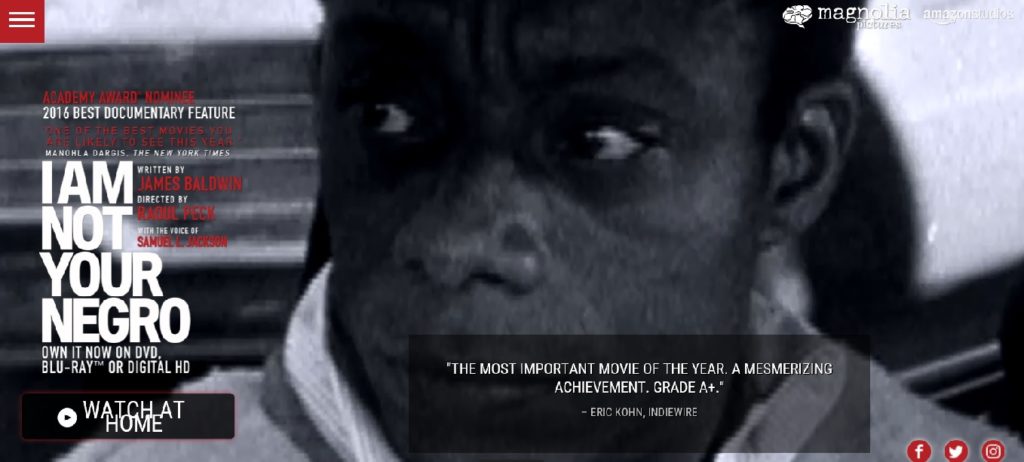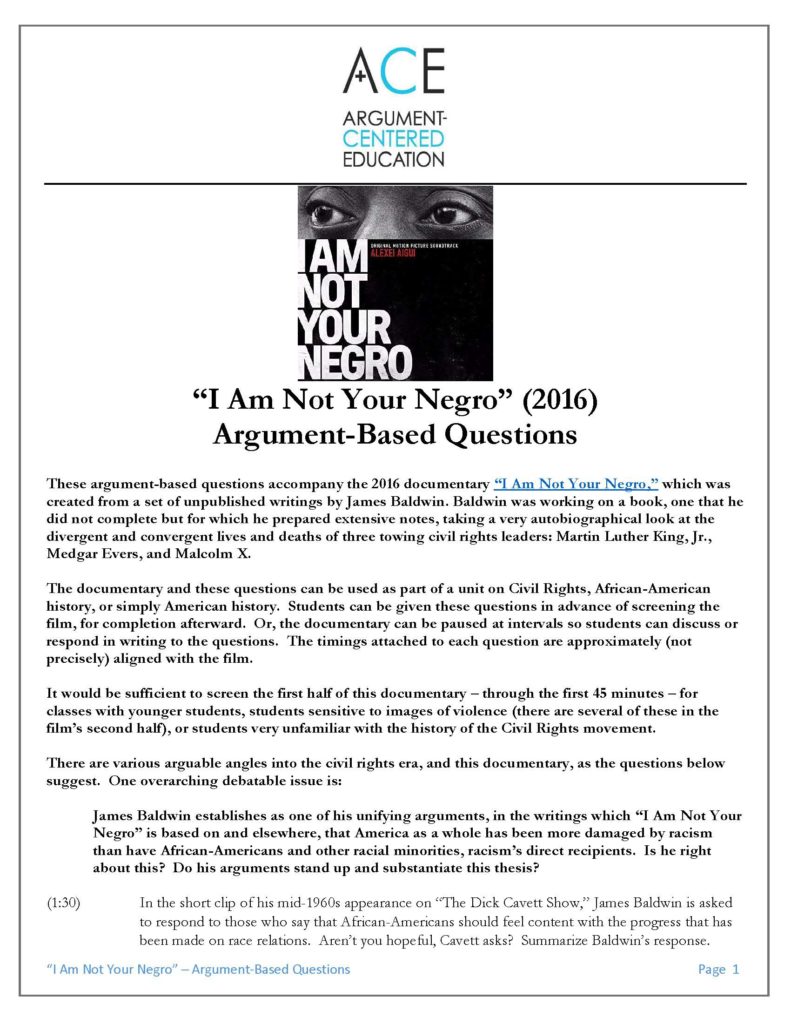
Teaching the Documentary ‘I Am Not Your Negro’ through Argument
I see a lot of documentaries, and one of the very best I’ve seen in a long while was “I Am Not Your Negro,” the 2016 film directed by Raoul Peck. The film was created from a set of unpublished writings by James Baldwin. Read by Samuel L. Jackson, they provide the only voiceover. Baldwin was working on a book, one that he did not complete but for which he prepared extensive notes, taking a distinctly autobiographical look at the divergent and convergent lives and deaths of three towing civil rights leaders: Martin Luther King, Jr., Medgar Evers, and Malcolm X.

NPR called the film “very powerful.” The New York Times said it was one of the best films of 2016. The Washington Post: “miraculous.” The Nation: “A work of moral witness.” The Hollywood Reporter: “Staggering.” These superlatives, of course, have everything to do with literary material that forms the film’s base, the writings of the towering black intellectual James Baldwin, who remains to this day under-rated as both a “moral witness” and an analyst of the racial, political, and sociological conditions of his time unsurpassed by anyone.
I worked to blend this outstanding historical-aesthetic artifact into argument-centered classroom instruction with two partner schools this school year. We worked on a set of argument-centered questions to accompany the film. The documentary and these questions can be used as part of a unit on Civil Rights, African-American history, or simply American history. Students can be given the questions in advance of screening the film, for completion afterward. Or, the documentary can be paused at intervals so students can discuss or respond in writing to the questions.

For classes with younger students, or for students sensitive to images of violence, it is sufficient to screen the first half of the documentary.
There are various arguable angles into the civil rights era, and this documentary, as the questions below suggest. One overarching debatable issue is:
James Baldwin establishes as one of his unifying arguments, in the writings on which “I Am Not Your Negro” is based, that America as a whole has been more damaged by racism than have African-Americans and other racial minorities, racism’s direct targets. Is he right about this? Do his arguments fully substantiate this thesis?
What makes these questions argument-based, as opposed to common discussion questions? They emphasize listening for, identifying, analyzing, and evaluating the film’s arguments, and those of its various scientific experts on the topic of renewable energy. A couple examples illustrate this emphasis:
(27:00) Appearing on Dr. Kenneth Clark’s television program, how does Martin Luther King respond to and attempt to refute Malcolm X’s criticism of the non-violent civil rights strategy as too passive, meek, and ineffective?
(28:00) What is Malcolm X’s rebuttal to Martin Luther King’s arguments? What does Baldwin say was the consequence of this debate on both men’s thinking?
(30:45) What is Malcolm X’s “great authority over his audiences,” according to James Baldwin? Does this authority qualify as pathos, ethos, or logos, in Aristotle’s rhetorical triad?
Not all of the questions use the language of argument this frontally. Many of the questions ask students to look for and pinpoint key factual content from the documentary that is important to addressing the larger issue questions, like those above, and that is likely to be important to arguments they will later make or respond to in the unit. The key quality they all have is that they are framed within a pedagogy that has students build and demonstrate knowledge through argumentation.

